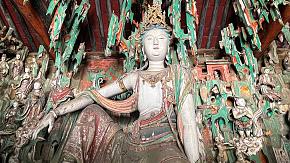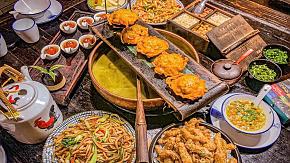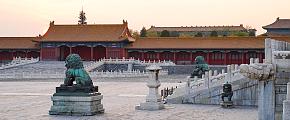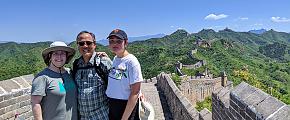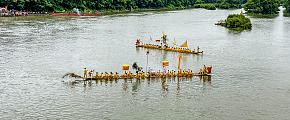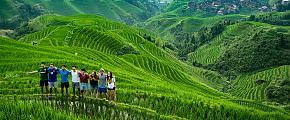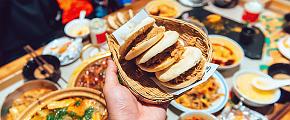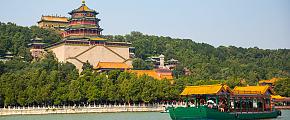China Travel Guide & Tips
As a country with vast territory and rich history, there is always much to see and do during your trip to China, where you can enjoy the magnificent nature, explore ancient historical sites, meet different local cultures, taste authentic cuisine in various places, or much more experience you may want to try. Here are your handy tips for traveling to China, read on and have a carefree China Tour.
Culture and History
As one essential cradle of mankind, China boasts a checkered history that can be traced back to as far as five millenniums ago. It's a history that has witnessed the succession of multiple historical periods and a glorious civilization created by determined, exploring people with great originality. Their brilliant construction and manufacturing technology can be demonstrated in the great wall, the Grand Canal, the Potala Palace, and the Forbidden City where diverse cultural relics are on display; luminaries in science, philosophy, and culture also abound, resulting in the four great inventions of ancient China (namely the compass, papermaking, gunpowder, and movable-type printing), and a cascade of literary masterpieces translated into dozens of languages. In this incredible land where the old meets the new, people have long been used to the fast-paced modernity yet still honor some centuries-old traditions, almost religiously. This cultural clash is most true in major cities like Beijing, Shanghai, and Guangzhou, where you may find, inside some state-of-the-art skyscrapers, couplets written by ink brush pasted outside the doors, a festive practice dating back to over a millennium ago. China's culture has introduced to the world many treasures, from Confucianism, ink painting, martial arts, and mah jong, to edifying philosophy, and is therefore a culture both time-honored and ever polished anew.
 Kung Fu Performance
Kung Fu Performance
Geography and Diverse Environment
Located in East Asia, China is one of the largest countries in the world, with a population of approximately 1.4 billion, covering an area of 9.6 million square kilometers. The country has a great variety of terrains, ranging from towering snow-capped mountains to high plateaux, inhospitable deserts, deep river valleys, terraced hills, rolling plains, broad basins, etc.
Mountains account for nearly a third of the land, with the most notable mountain ranges being the Himalayas, the Tian Shan Mountains, and the Kunlun Mountains. Snow-capped mountains in the west helped create the nation's two most important rivers: the Yellow River (regarded as the cradle of the Chinese civilization) and the Yangtze River (China's longest river).
The diverse topography of the country resulted in people's different ways of living that have changed gradually over time. Contemporary China is a contrast of quiet villages, bustling towns and cities, and thriving metropolises.
 Longji Rice Terrace
Longji Rice Terrace
Eating and Drinking
China's vast size makes its national diet vary accordingly. In terms of taste, people in the north prefer salty while those in the south prefer sweet; the eastern prefers sour and the western prefers pungency. Rice is the staple food for southern residents and wheat for the northern. The most used Chinese cooking techniques include pan and stir-frying, steaming, braising, simmering, etc. In addition, Chinese cuisine is particular about the harmony of color, aroma, taste, and shape.
The must-eat food in China is Peking duck (Beijing), pan-fried baozi (Shanghai), hot pot (Chengdu), and dim sum (Hong Kong or Guangzhou). Just in case you can't adapt to the new oriental taste, western food or restaurant can be easily found in tourist areas.
Tea is served everywhere in China, in meals or in leisure time. Chinese favorite tea drinks include green tea, herbal tea, black tea, and oolong tea. Likewise, visitors won't want to miss China's important alcoholic beverages, such as the staple Baijiu (strong spirit of Maotai and Erguotou), domestic brand beers (Tsingtao Beer, Yanjing Beer), and wines (Zhangyu).
China is catching up with easy table manners, but it'd never be wrong to follow the following dining etiquette:
1. Respect the seniors/elderly at the table by letting them read the menu first or proactively pouring a cup of drink.
2. When sitting by a round table, turn the lazy Susan only when it's available.
3. Use two hands to hold the cup when making a toast.
4. Never use chopsticks to point at anyone (rude act) or leave them to stick upright on the dishes (bad luck).
 Sichuan Hot Pot
Sichuan Hot Pot
Shopping
China is a paradise for shoppers, with plenty of unique shopping experiences, from large shopping malls in Beijing, and high-end boutique stores in Shanghai, to charming village markets of the less-traveled corners of the country.
Silk
Chinese silk has been well-known to the world for centuries. There's no better place to buy silk than in China where it was born and refined. It's worth bringing home some silk fabric, clothing, or scarves.
Tea
As the birthplace of tea, China remains one of the largest tea producers, with hundreds of different varieties of tea. Some of the world's finest teas such as Keemun black tea, Dragon Well green tea, and Big Red Robe oolong tea are all from China. Don't leave China without picking up some of these teas.
Calligraphy Art
Calligraphy is seen as the highest form of visual art in China. This centuries-old form of art is still practiced by many Chinese. Consider buying an antique artwork or getting a tailor-made piece with your name on it.
Chinese Knots
These traditional artistic handicrafts symbolize good luck and prosperity in China. Remember to take one back home for your beloved friend.
Paper-cut Art
The art of paper cutting requires a lot of care and effort, but the intricately beautiful result makes it all worthwhile. Though closely related to Chinese New Year, paper-cut artworks can be found all year round, most of which are associated with people, animals, and flowers.
 Paper-cut Art
Paper-cut Art
Festivals
China is a land of fascinating festivals. Experiencing Chinese festivals is a fantastic way to learn about the various traditions, culture, history, and food of the country. Below are some of the most important traditional Chinese festivals that you might want to be part of during your tour to China.
Spring Festival
Also known as Spring Festival, Chinese New Year is China's grandest and most important festival. The festival falls on the 1st day of the 1st lunar month, which is usually from January 21st to February 20th in the Gregorian calendar. Celebrations can last two weeks with feasts, fireworks, fairs, parades, and decorative red scrolls. It's a great time for family and friends to gather together, waving goodbye to the past year and welcoming a new year of happiness, hope, health, and prosperity.
Lantern Festival
With a history of over 2000 years, the Lantern Festival is celebrated on the 15th day of the Chinese lunar month, marking the end of the Chinese New Year celebrations. During the festival, people set off fireworks, watch lanterns, guess lantern riddles, see lion dances, and have tangyuan (a glutinous rice ball filled with sweet red bean paste, sesame paste, or peanut butter).
Dragon Boat Festival
Dragon Boat Festival is also called Duanwu Festival and falls on the 5th day of the 5th lunar month. It is said to honor an ancient Chinese poet named Qu Yuan as well as to ward off evil spirits and disease. The most eye-catching activity of the festival is dragon boat racing and sticky rice dumpling is a must-eat snack on this day.
Mid-Autumn/Moon Festival
Associated with harvest and family reunion, the Mid-Autumn Festival or Moon Festival is the second most important traditional Chinese festival after the Chinese New Year. It falls on the 15th day of the 8th lunar month with a full moon at night, usually late September to early October of the Gregorian calendar. On this day, family and friends get together to share a reunion dinner, tasting delectable mooncakes and admiring the beautiful bright moon.
Money
The currency in China is RMB (Renminbi). And the foreign currencies need to be exchanged into RMB so that they can be used. You can go to the Bank of China or other designated foreign exchange banks to exchange foreign currencies. The Bank of China can provide the exchange service of 22 kinds of foreign currencies banknotes and the Taiwan dollar. It is a good idea to carry some important foreign currencies such as the US, Canadian or Australian dollars, or British pounds, which are more widely exchangeable in China.
In addition, you can exchange currencies in some hotels, restaurants, or shops. You can carry the foreign currencies, which are exchanged from the unspent RMB through the exchange menu with six months validity, out of China.
At present, the foreign credit cards that can be handled in China include Master Card, Visa Card, American Express Card, JCB Card, and Diners Card.
Electricity
The standard voltage in China is 220V, 50 Hz. A variety of electrical outlets can be found in China. These outlets can accept standard Type-A plugs and common Type-I plugs as well as Type-C plugs. The three-star hotels or above will offer an uninterruptible power socket of 110/220v. And the socket is of round three or two pins in most hotels.
Health
Before visiting China, we recommend the following vaccinations to you to prevent contagious diseases in China: Hepatitis A, Hepatitis B, Japanese encephalitis, Rabies, Typhoid, Tetanus, Diphtheria, and Measles. You can choose the vaccination types according to your length of stay, planned destination, and health condition. It is a good choice to take the medical records that note your blood type, medications that you are taking, allergies, and other information.
Water is easily accessible in China, but tap water is not suitable for drinking. In order to guarantee safety, all the water must be boiled or filtered except for bottled mineral water, which you can buy from stores or supermarkets.
If you are afraid of stomach upsets, it is better to take some stomach medicine before eating, even though the food is cooked or cleaned carefully.
Quick Question
Related Posts You May Like
What Our Clients Say
Explore the latest verified reviews of Odynovo's travel services on Tripadvisor, Google, Trustpilot, Product Review and more trusted platforms.
SUBSCRIBE TO WIN A FREE TOUR
Subscribe to our newsletter for a chance to win a free 7-day tour to India! And more insider travel news, exclusive offers, and inspiration will be sent straight to your inbox. Check our previous newsletters and get some sparks.

